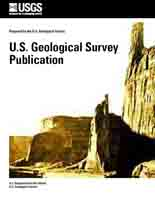Acanthocephaliasis
Links
- Document: Report (pdf)
- Larger Work: Field manual of wildlife diseases: General field procedures and diseases of birds
- Download citation as: RIS | Dublin Core
Abstract
The phylum Acanthocephala contains parasitic worms referred to as thorny-headed worms because both the larval and adult parasites have a retractable proboscis or a tubular structure at the head, which has sharp, recurved hooks or spines. Much like the cestodes or tapeworms, they lack digestive tracts and absorb nutrients from the bird’s intestinal canal. This may weaken the bird and may make it more susceptible to other diseases and to predation.
Adult acanthocephalans are found in a variety of bird species and in other vertebrates. More than 50 species of acanthocephalans have been reported in waterfowl, but reevaluations of acanthocephalan taxonomy are resulting in revised speciation. Nevertheless, numerous species within the phylum are found in birds.
Suggested Citation
Cole, R.A., 1999, Acanthocephaliasis: Information and Technology Report 1999-0001, 3 p.
| Publication type | Report |
|---|---|
| Publication Subtype | Federal Government Series |
| Title | Acanthocephaliasis |
| Series title | Information and Technology Report |
| Series number | 1999-0001 |
| Year Published | 1999 |
| Language | English |
| Publisher | U.S. Geological Survey |
| Publisher location | Reston, VA |
| Contributing office(s) | National Wildlife Health Center |
| Description | 3 p. |
| Larger Work Type | Report |
| Larger Work Subtype | USGS Numbered Series |
| Larger Work Title | Field manual of wildlife diseases: General field procedures and diseases of birds |
| First page | 241 |
| Last page | 243 |


